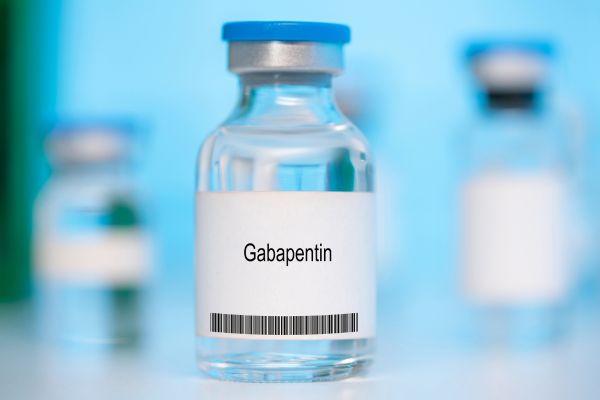The drug gabapentin, also marketed under the name Neurontin, was mainly created to treat epilepsy. However, currently, its uses have expanded, and it is now used to treat ailments including nerve discomfort, restless legs syndrome, and even as a support for pain management. Despite its adaptability, withdrawal symptoms may occur if consumption is stopped abruptly after an extended period. Patients and healthcare professionals must comprehend and manage these symptoms.
Introduction to Gabapentin
Gabapentin was primarily used to treat epilepsy patients by acting as an anticonvulsant. Since then, though, postherpetic neuralgia and other neuropathic pain syndromes have been treated with it. The medication basically reduces hyperactivity by altering the impulses that nerves give to the brain. While it is not a pain medication or an opioid, it still has some risk of abuse. Once you get off of gabapentin, it can result in withdrawal. Here are some of the common physical symptoms of gabapentin withdrawal.
Physical Symptoms of Gabapentin Withdrawal:
Gabapentin withdrawal can manifest neurological, abdominal, heart, and muscle-related symptoms. The following is a detailed explanation of gabapentin withdrawal:
Neurological Symptoms:
Since gabapentin directly impacts the central nervous system, the most pronounced symptoms are neurological:
- Tremors: Irregular, involuntary muscular movements that are most evident in the hands.
- Dizziness: Patients frequently complain of dizziness or the sensation that everything is whirling around them.
- Fatigue and insomnia: It is a common symptom that involves trouble falling asleep or staying asleep.
- Feeling Anxious: Patients may have elevated anxiety, which frequently shows itself as excessive concern or restlessness.
- Restlessness and hyperactivity: A strong need to move or an inability to remain motionless is known as restlessness.
- Seizures: Although less common, some patients may get seizures, particularly if they stop taking their medicine suddenly.
Abdominal Withdrawal Symptoms:
- Nausea
- Vomiting
- Diarrhea
Heart and Muscular Symptoms:
- Heart Palpitations: Feeling that the heart is either racing, pounding, or skipping beats.
- Sweating: Increased sweating without any visible triggers.
- Muscle pain: Random body aches or muscle discomfort.
- Headaches: Mild to severe headache, depending on the severity of the withdrawal and dependence.
Pain Management and Mitigation of Withdrawal Symptoms
Withdrawal symptoms from any medication may take a toll on your health. There are some medical techniques that you can use with the guidance of a healthcare provider.
Gradual Tapering
Rather than discontinuing gabapentin suddenly, it is recommended to taper off the drug under the supervision of a professional. This is done to avoid gabapentin withdrawal symptoms that may worsen the underlying condition. Your doctor will formulate a proper tapering schedule specifically for you, keeping an eye out for withdrawal symptoms and adjusting as needed. It’s crucial to stay hydrated, have a healthy lifestyle, and look for support during this period. To guarantee a safe and successful tapering procedure, it’s important to exercise patience and adhere to your provider’s advice.
Over-the-counter (OTC) Medications
While there are no medications to address gabapentin withdrawal, there are certain over-the-counter (OTC) drugs that may assist in managing specific discomforts during gabapentin withdrawal if your doctors recommend. However, no OTC medication may totally reduce symptoms during this time. Antacids and anti-nausea drugs can help with gastrointestinal problems, while over-the-counter pain treatments like NSAIDs can help with aches and pains in the muscles. Insomnia may be alleviated with over-the-counter sleep medications. Do not take these medications without consulting your doctor.
Counseling and Support Groups
During gabapentin withdrawal, counseling and support groups may be very helpful as they provide a feeling of community, coping mechanisms, and emotional support. The emotional and psychological components of withdrawal can be addressed in individual counseling and therapy sessions with mental health specialists, while group therapy and support groups offer the chance to exchange experiences and ideas with others going through comparable struggles.
Furthermore, peer support and additional assistance may be obtained through internet forums and addiction rehab programs. To effectively manage the difficulties of gabapentin withdrawal, specialists may personalize your strategy to your specific requirements and look for the ideal combination of tools and support while working with a healthcare professional or therapist.
Aftercare
Aftercare is a vital aspect of recovery following withdrawal, whether from substances or medications like gabapentin, encompassing ongoing support, coping strategies, and lifestyle changes. It involves continued counseling or therapy, participation in support groups, relapse prevention planning, medication management, regular check-ins with healthcare professionals, and a focus on healthy relationships, hobbies, and self-monitoring. Personalized and consistent aftercare is essential to maintaining sobriety and reducing the risk of relapse, and it should be crafted in collaboration with healthcare providers, therapists, and support networks to address individual needs and circumstances effectively.
Potential Long-Term Implications
For some individuals, the withdrawal process may be prolonged. Chronic symptoms might need long-term management strategies, underscoring the importance of regular check-ins with healthcare providers.
Conclusion
In summary, gabapentin is a flexible drug that was first created to treat epilepsy. It is widely used to treat a variety of conditions, on-label and off-label. However, stopping suddenly might cause withdrawal symptoms. The physical symptoms of gabapentin withdrawal have been described in this article, with a focus on the necessity of careful weaning down under medical supervision and the possible use of over-the-counter drugs to ease some discomforts. Counseling and support groups also offer vital coping mechanisms and emotional support during this trying time. Aftercare is essential to sustaining sobriety and averting relapse because of its emphasis on continuing support, coping mechanisms, and lifestyle modifications. Healthcare practitioners must continue to monitor long-term effects. Those who are aware of these difficulties and take the necessary action can quit gabapentin more easily and confidently.
